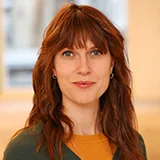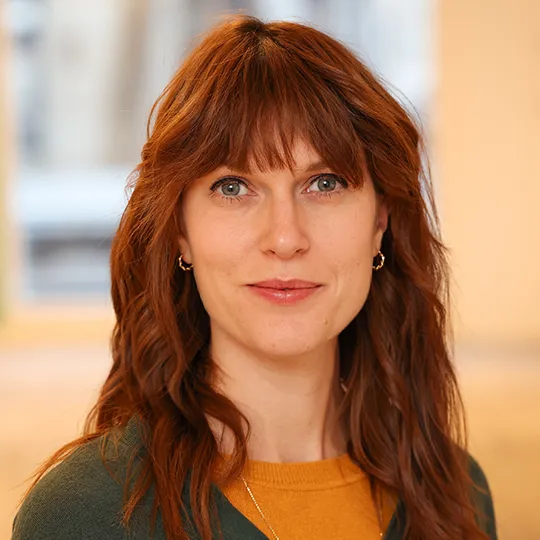The Borders & Migration Research Group is a newly revived research space for collaborative and critical work on borders, migration and mobility. Based in the Department of War Studies, the group brings together scholars at all career stages, with a strong commitment to supporting early career researchers and PhD students, in order to explore the political, social, economic and historical dimensions of movement, exclusion, bordering and control practices. While the BMRG aims to create space for research development, feedback, and collaboration across disciplines and approaches, we are also keen to be a platform for connecting academic research with broader audiences such as practitioners, artists, journalists, and policy actors. Through planned events such as a new seminar series, collaborative workshops, and public talks, the group aims to build a vibrant and inclusive research community.
Originally set up in the wake of the misnamed "European refugee crisis", the BMRG sought to develop a better understanding of migration. For instance, in the past, our work studied the effects of migration management policies and the lived experiences of people on the move.
The Group's past projects included:
- Collaborative research, such as the student-led Humans of Calais project
- Advocacy
- The development of policy advice, such as the Legal Pathways to Protection project
The Group has been dormant for the past few years. So, now, we are actively looking for new members to help shape the future direction of BMRG. If your work touches on any aspect of borders or migration, and you are curious to connect with others who share these research interests, we'd love to hear from you! To join to group, or to learn more, please contact the group's co-leads, Dr Samah Rafiq and Dr Lucrezia Canzutti, or email us at mrg@kcl.ac.uk.
Projects
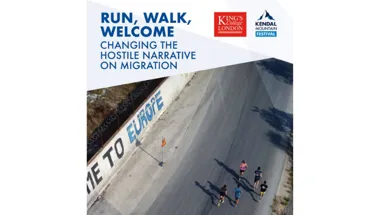
Run, Walk, Welcome: Changing the Hostile Narrative on Migration
Run, Walk, Welcome is a collaborative project that aims to change the hostile narrative on migration and create a more inclusive society by bringing runners, walkers and people with a forced migration background into conversation while enjoying the outdoors. It is a collaboration between King’s College London, Kendal Mountain Festival and everyone who participates in the project. The project consists of a series of workshops and runs/walks that are intended as spaces for mutual learning, reflection and understanding. The workshops are open to everyone who is interested in running/walking in the outdoors and changing the hostile narrative on migration. We especially welcome people with a (forced) migration background to join the conversation. Together we will seek to reshape the narrative through our conversations and by generating creative outputs for a broader audience such as photography, film, words and art. More details about the project and the workshops can be found here: http://bit.ly/46WXW4Y
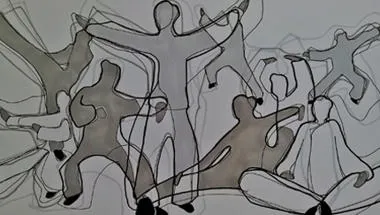
Migration: Movement – Becoming – Violence
Migration is a large scale, time-based Editorial project created and produced by Arts Cabinet in 2019-20. The project brought together 16 artists, scholars and practitioners from around the world to explore the topic of migration from a wide range of positions and angles. The outcome is a digital document featuring over 60 contributions that assembled offer a kaleidoscopic perspective into the subject of migration.
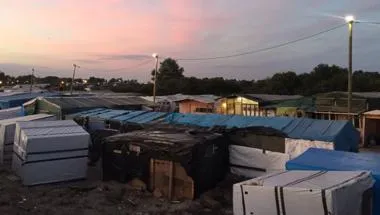
Humans of Calais
Humans of Calais is a student-led research project that gives voice to migrants in order to understand their experiences from their own perspective. The research was conducted in July 2016 when the informal refugee camp in Calais hosted around 10,000 people and was about to be destroyed. Residents of the Calais camp were given disposable cameras to record their daily lives in the camp. These visual snapshots, and the migrants’ narratives that accompany them, offer a unique insight into the ways in which migrants build their lives under difficult and makeshift circumstances, whilst also showing their ideas and dreams. The research resulted in a photo exhibition of daily life in the camp, as well as a research report and an open Democracy article . The research was conducted by: Signe Sofie Hansen, Tara Flores, Ishita Singh and Layla Mohseni

Legal Pathways to Protection
Funded by the KCL Faculty Impact Development Fund, Legal Pathways to Protection is a collaboration between the MRG and the British Institute of International and Comparative Law. This project has a twofold aim: To highlight the importance of legal pathways as a policy solution (among others) in response to the so-called “refugee crisis”; legal pathways facilitate the protection of migrants’ safety and rights by preventing them from dying and/or being subjected to inhuman conditions en route on dangerous journeys. To produce a set of policy recommendations for a comprehensive and integrated legal pathways framework These aims are informed by two principles: firstly, protecting the fundamental rights of individuals and, secondly, solidarity and responsibility-sharing among states. Legal pathways to protection do exist and there are numerous examples where these have been successfully used to secure migrants’ safety and dignity, however, existing pathways have been applied restrictively, lack capacity, or have been ignored altogether. Hence, this project advocates for better use of existing pathways. In addition, it argues for an integrated approach combining a range of pathway options to ensure maximum effect, respond to the diverse needs of those displaced and enable adequate responses to the ever-changing migration landscape.
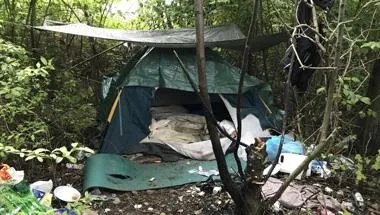
Migrant Agency and the Moving Image
Funded by King’s Cultural Institute and Somerset House Arts in Society Fund, Migrant Agency and the Moving Image brings together MRG researchers Leonie Ansems de Vries and Signe Sofie Hansen with artist filmmaker Imran Perrettta. The project seeks to understand and raise awareness of the conditions of irregular migrants in Northern France after the demolition of the Calais and Dunkirk camps. Through a combination of text, moving and still images the project highlights the daily violence experienced by migrants as a politics of exhaustion. The project is also concerned with the politics of knowledge production and the issue of (re)presenting migrant experiences through visual image. As part of the Arts in Society showcase, a short film was produced that highlights the key questions and insights of the research. Exhibition We Are In Between.21 March 2018, 18:30-20:00, Bush House, The Exchange Space. This exhibition relays, in text and still and moving image, some of the narratives of the migrants the Migration Research Group met in Calais and Dunkirk in September 2017.
ARISE: Analysing Refugee Inclusion in Southern Europe’ (Erasmus+)
Funded by an ERASMUS+ grant, ARISE is a education and training project led by KAIROS (UK). The MRG acts as a consortium partner on this project, which offers a range of professional development courses on migration in Southern Italy. A group of MRG members will attend these courses and, upon return, share the insights gained with the larger student body and members of the public through the organisation of workshops and the writing of articles and blogposts.
Publications
- Mohseni, Layla, Signe Sofie Hansen, Tara Flores and Ishita Singh, 'Humans of Calais: a photo essay', openDemocracy, 6 February 2017
- Singh, Ishita, Tara Flores, Layla Mohseni and Signe Sofie Hansen (2016) Humans of Calais: Migration from the Perspective of Migrants, Research Report (King’s College London)
- Ansems de Vries, Leonie, Jean-Pierre Gauci and Henry Redwood (2017) ‘Legal Pathways to Protection: Towards the Provision of Safe, Legal and Accessible Routes for Refugees and Vulnerable Migrants’ (King’s College London)
Activities
Faint Traces
Dr Lucrezia Canzutti co-organised the exhibition Faint Traces with the Vietnamese artist Nguyen Thi Thanh Mai (Phnom Penh, 2–23 July 2025). The exhibition explored the history of the stateless Vietnamese minority in Cambodia, reflecting on the themes of violence, erasure, and (im)mobility. The ethnic Vietnamese have lived in Cambodia for generations, many of them having arrived during or before the French colonial occupation. Yet, in the popular imaginary, they are cast as illegal immigrants and outsiders. Faint Traces invited viewers to pay attention to the ‘minor histories’ that have been buried, erased, and ignored in mainstream discourse, as a means of resisting divisive rhetoric and (re)imagining shared pasts and futures. The exhibition’s artwork wove together personal accounts and archival materials, unveiling tales of displacement, dispossession, and deracination — but also survival, resilience, and kinship. Archives offer a productive starting point for reflecting on history, identity, and belonging. Colonial and post-colonial maps, photographs, and identity documents alert us to the continuities between past and present, and to the intergenerational presence of ethnic Vietnamese communities in Cambodia. Yet, the artworks in the exhibition did not use archival materials in their original form: they disrupted them, fragmented them, hid them, and juxtaposed them with Vietnamese people’s own stories, objects, memories, and knowledges. Working across installation, photography, moving images, rubbings, drawings, and fragmented field notes, the exhibition encouraged the audience to consider how we might intervene in and reimagine (with) the Archive. Faint Traces was made possible through support from the Faculty of Social Science & Public Policy Research and Impact Fund and the School of Security Studies Impact Fund.
News
King's puts 'Compassion into Action' for Refugee Week 2023
This week (19-25 June) marks Refugee Week, for which the theme is ‘Compassion into Action’. As a university, King’s strives to ensure individuals affected by...
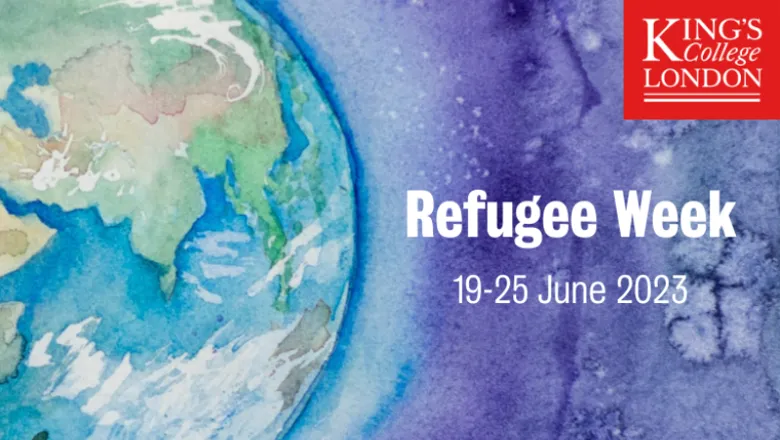
Events
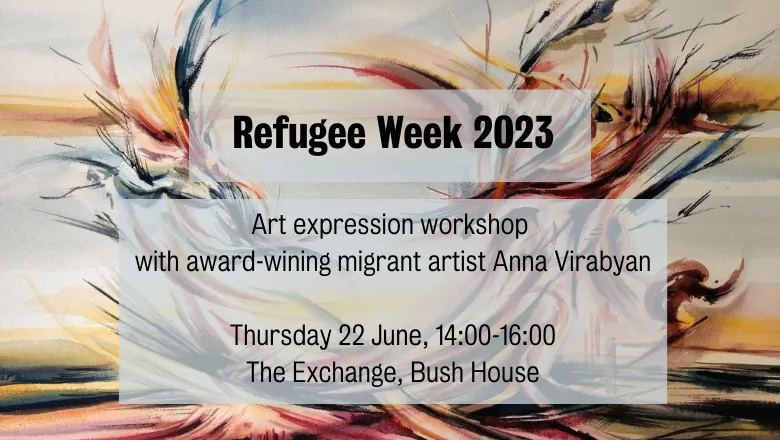
Art expression workshop with award-winning migrant artist Anna Virabyan
Art expression workshop with award winning migrant artist Anna Virabyan.
Please note: this event has passed.
Projects

Run, Walk, Welcome: Changing the Hostile Narrative on Migration
Run, Walk, Welcome is a collaborative project that aims to change the hostile narrative on migration and create a more inclusive society by bringing runners, walkers and people with a forced migration background into conversation while enjoying the outdoors. It is a collaboration between King’s College London, Kendal Mountain Festival and everyone who participates in the project. The project consists of a series of workshops and runs/walks that are intended as spaces for mutual learning, reflection and understanding. The workshops are open to everyone who is interested in running/walking in the outdoors and changing the hostile narrative on migration. We especially welcome people with a (forced) migration background to join the conversation. Together we will seek to reshape the narrative through our conversations and by generating creative outputs for a broader audience such as photography, film, words and art. More details about the project and the workshops can be found here: http://bit.ly/46WXW4Y

Migration: Movement – Becoming – Violence
Migration is a large scale, time-based Editorial project created and produced by Arts Cabinet in 2019-20. The project brought together 16 artists, scholars and practitioners from around the world to explore the topic of migration from a wide range of positions and angles. The outcome is a digital document featuring over 60 contributions that assembled offer a kaleidoscopic perspective into the subject of migration.

Humans of Calais
Humans of Calais is a student-led research project that gives voice to migrants in order to understand their experiences from their own perspective. The research was conducted in July 2016 when the informal refugee camp in Calais hosted around 10,000 people and was about to be destroyed. Residents of the Calais camp were given disposable cameras to record their daily lives in the camp. These visual snapshots, and the migrants’ narratives that accompany them, offer a unique insight into the ways in which migrants build their lives under difficult and makeshift circumstances, whilst also showing their ideas and dreams. The research resulted in a photo exhibition of daily life in the camp, as well as a research report and an open Democracy article . The research was conducted by: Signe Sofie Hansen, Tara Flores, Ishita Singh and Layla Mohseni

Legal Pathways to Protection
Funded by the KCL Faculty Impact Development Fund, Legal Pathways to Protection is a collaboration between the MRG and the British Institute of International and Comparative Law. This project has a twofold aim: To highlight the importance of legal pathways as a policy solution (among others) in response to the so-called “refugee crisis”; legal pathways facilitate the protection of migrants’ safety and rights by preventing them from dying and/or being subjected to inhuman conditions en route on dangerous journeys. To produce a set of policy recommendations for a comprehensive and integrated legal pathways framework These aims are informed by two principles: firstly, protecting the fundamental rights of individuals and, secondly, solidarity and responsibility-sharing among states. Legal pathways to protection do exist and there are numerous examples where these have been successfully used to secure migrants’ safety and dignity, however, existing pathways have been applied restrictively, lack capacity, or have been ignored altogether. Hence, this project advocates for better use of existing pathways. In addition, it argues for an integrated approach combining a range of pathway options to ensure maximum effect, respond to the diverse needs of those displaced and enable adequate responses to the ever-changing migration landscape.

Migrant Agency and the Moving Image
Funded by King’s Cultural Institute and Somerset House Arts in Society Fund, Migrant Agency and the Moving Image brings together MRG researchers Leonie Ansems de Vries and Signe Sofie Hansen with artist filmmaker Imran Perrettta. The project seeks to understand and raise awareness of the conditions of irregular migrants in Northern France after the demolition of the Calais and Dunkirk camps. Through a combination of text, moving and still images the project highlights the daily violence experienced by migrants as a politics of exhaustion. The project is also concerned with the politics of knowledge production and the issue of (re)presenting migrant experiences through visual image. As part of the Arts in Society showcase, a short film was produced that highlights the key questions and insights of the research. Exhibition We Are In Between.21 March 2018, 18:30-20:00, Bush House, The Exchange Space. This exhibition relays, in text and still and moving image, some of the narratives of the migrants the Migration Research Group met in Calais and Dunkirk in September 2017.
ARISE: Analysing Refugee Inclusion in Southern Europe’ (Erasmus+)
Funded by an ERASMUS+ grant, ARISE is a education and training project led by KAIROS (UK). The MRG acts as a consortium partner on this project, which offers a range of professional development courses on migration in Southern Italy. A group of MRG members will attend these courses and, upon return, share the insights gained with the larger student body and members of the public through the organisation of workshops and the writing of articles and blogposts.
Publications
- Mohseni, Layla, Signe Sofie Hansen, Tara Flores and Ishita Singh, 'Humans of Calais: a photo essay', openDemocracy, 6 February 2017
- Singh, Ishita, Tara Flores, Layla Mohseni and Signe Sofie Hansen (2016) Humans of Calais: Migration from the Perspective of Migrants, Research Report (King’s College London)
- Ansems de Vries, Leonie, Jean-Pierre Gauci and Henry Redwood (2017) ‘Legal Pathways to Protection: Towards the Provision of Safe, Legal and Accessible Routes for Refugees and Vulnerable Migrants’ (King’s College London)
Activities
Faint Traces
Dr Lucrezia Canzutti co-organised the exhibition Faint Traces with the Vietnamese artist Nguyen Thi Thanh Mai (Phnom Penh, 2–23 July 2025). The exhibition explored the history of the stateless Vietnamese minority in Cambodia, reflecting on the themes of violence, erasure, and (im)mobility. The ethnic Vietnamese have lived in Cambodia for generations, many of them having arrived during or before the French colonial occupation. Yet, in the popular imaginary, they are cast as illegal immigrants and outsiders. Faint Traces invited viewers to pay attention to the ‘minor histories’ that have been buried, erased, and ignored in mainstream discourse, as a means of resisting divisive rhetoric and (re)imagining shared pasts and futures. The exhibition’s artwork wove together personal accounts and archival materials, unveiling tales of displacement, dispossession, and deracination — but also survival, resilience, and kinship. Archives offer a productive starting point for reflecting on history, identity, and belonging. Colonial and post-colonial maps, photographs, and identity documents alert us to the continuities between past and present, and to the intergenerational presence of ethnic Vietnamese communities in Cambodia. Yet, the artworks in the exhibition did not use archival materials in their original form: they disrupted them, fragmented them, hid them, and juxtaposed them with Vietnamese people’s own stories, objects, memories, and knowledges. Working across installation, photography, moving images, rubbings, drawings, and fragmented field notes, the exhibition encouraged the audience to consider how we might intervene in and reimagine (with) the Archive. Faint Traces was made possible through support from the Faculty of Social Science & Public Policy Research and Impact Fund and the School of Security Studies Impact Fund.
News
King's puts 'Compassion into Action' for Refugee Week 2023
This week (19-25 June) marks Refugee Week, for which the theme is ‘Compassion into Action’. As a university, King’s strives to ensure individuals affected by...

Events

Art expression workshop with award-winning migrant artist Anna Virabyan
Art expression workshop with award winning migrant artist Anna Virabyan.
Please note: this event has passed.


